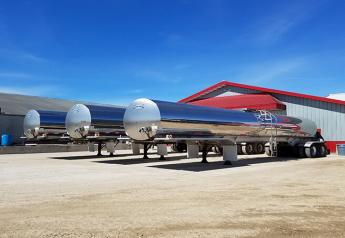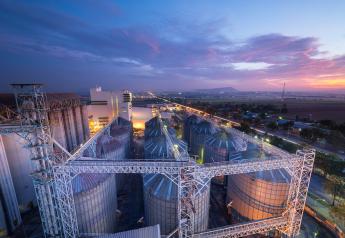California Meat Plant Reopens

Facility resumes operations a week after USDA closed it down amid video allegations of dairy cow abuse. Company still suspended from supplying meat to federal food programs.
USDA’s Food Safety and Inspection Service (FSIS) yesterday lifted the suspension it issued to Central Valley Meat Co. on August 19, allowing the company to resume operations this morning.
The Hanford, Calif., meat plant was granted permission to re-open after USDA concluded its evaluation of an extensive action plan submitted Thursday by Central Valley Meat Company to correct recent humane handling violations.
The resumption of business comes a week after FSIS withdrew its inspectors and closed down the plant after an undercover video released by animal activists showed dairy cows allegedly being abused in Central Valley Meat Co.’s slaughter operations.
Central Valley Meat said it has worked closely with both inspectors and industry experts while developing its USDA-approved action plan. “Central Valley Meat is a family-run business with deep roots in this community, and we’re especially thankful that our 450 hard-working men and women can finally return to their jobs,” the company said through its public relations firm, Edelman.
“As a result, Central Valley Meat will provide better training for our workers, better monitoring of our facilities, and more frequent third-party audits of our operations,” the company said. “We believe these measures will establish a new industry standard for the handling of animals. For decades, Central Valley Meat has provided the country with safe, high-quality, U.S. beef. We look forward to getting back to work and continuing to help feed America.”
FSIS’ investigation into alleged food safety violations at Central Valley Meat Co. is ongoing.
USDA, McDonald's and In-N-Out Burger last week halted their purchases of meat from Central Valley Meat Co., after the group, Compassion Over Killing, released the video.
“The company is also ineligible to bid on future contracts until AMS reviews and approves corrective and preventative measures that will give the department confidence that humane handling violations will not be repeated,” said FSIS.
“The company has committed to a number of corrective actions including additional humane handling training for employees and safeguards to ensure that only ambulatory animals are processed," FSIS said.
Central Valley Meat Co.’s corrective actions include:
1. Allowing only properly trained employees to help an animal that is capable of rising by providing the animal a steady hand support. Under no circumstances such support will be through attempting to pull, drag, or lift an animal.
2. Allowing only properly trained employees to use electric or vibrating prods sparingly and only on muscled and well fleshed areas and never on the face or sensitive parts.
3. Ensuring prompt and effective stunning of an animal showing signs of regaining consciousness by making available alternate loaded and ready-for-immediate-use stunners in holders that allow the operator to quickly re-stun the animal.
4. Retraining employees on humane handling of animals on a quarterly basis, increasing frequency of established monitoring of company humane handling-related practices including camera monitoring, and establishing an additional oversight through a Company Animal Welfare Committee.
5. Not allowing non-ambulatory cattle be received at the establishment. If cattle become non-ambulatory during transportation, they will be humanely stunned on the trailer.
The plant’s reopening also followed a letter late last week from three area congressmen to USDA Secretary Tom Vilsack, urging him to reopen the facility. U.S. representatives Devin Nunes, Kevin McCarthy and Jeff Denham said the plant’s employees and local farmers were suffering economic hardship as a result of the meat plant’s closure.
“The Central Valley is proud of the role it plays in putting food on America’s tables, but our area is under great economic pressure,” Central Valley Meat Co. said Sunday. “We’re experiencing double-digit unemployment, and the one-week federal closure of our facilities put an even greater strain on our community.”







